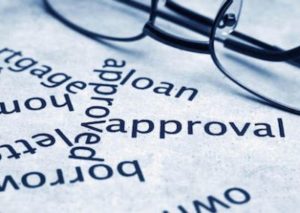How to Get a Mortgage
 Getting a mortgage is a big decision that involves many steps and factors. Here are some tips and resources to help you understand how to get a mortgage and what to expect.
Getting a mortgage is a big decision that involves many steps and factors. Here are some tips and resources to help you understand how to get a mortgage and what to expect.
- Before you apply for a mortgage, you should check your credit score, save for a down payment, and budget for how much you can afford to spend on a monthly basis.
- Your credit score affects the interest rate and terms you can qualify for, so it’s important to have a good score and fix any errors on your credit report.
- A down payment is the amount of money you pay upfront for the home, and it can range from 0% to 20% or more of the purchase price. The more you can put down, the lower your loan-to-value ratio (LTV) will be, which can help you get a better deal. Your monthly budget should include not only the mortgage payment, but also the property taxes, homeowners insurance, homeowners association fees, and maintenance costs. You can use a mortgage calculator to estimate how much you can borrow and what your monthly payment will be.
- When you’re ready to apply for a mortgage, you should shop around and compare offers from different lenders. You can get a mortgage from banks, credit unions, mortgage lenders, mortgage brokers, or online mortgage companies. Each lender may have different rates, fees, and requirements, I poll multiple lenders on your behalf to get the best rate available.
- To get pre approved for a mortgage, you’ll need to fill out a loan application and provide some documents to the lender, such as your W-2s, pay stubs, bank statements, tax returns, and proof of assets. The lender will also check your credit and verify your income and assets. A pre approval letter will show how much you can borrow, what interest rate and terms you can get, and how long the offer is valid for. A pre approval letter can help you stand out as a serious buyer when you make an offer on a home.
- After you find a home you want to buy and negotiate the purchase details with the seller, you’ll need to complete the full mortgage application and submit it to the lender. The lender will then order an appraisal of the home to make sure it’s worth the amount you agreed to pay. The lender will also review your documents and financial situation again to make sure nothing has changed since the pre approval. This process is called underwriting, and it can take several weeks to complete. The lender will also send you a loan estimate, which is a document that shows the final terms and costs of your mortgage. You should review this document carefully and ask any questions you have before you sign it.
- The last step of getting a mortgage is closing the loan. This is when you sign the final paperwork, pay the closing costs, and get the keys to your new home. Closing costs are the fees and charges that you pay to finalize the mortgage, and they typically range from 2% to 5% of the loan amount. Some of the closing costs include the appraisal fee, the origination fee, the title insurance, the recording fee, and the escrow deposits. You can negotiate with the seller or the lender to pay some or all of the closing costs for you, or you can roll them into your loan amount. You’ll receive a closing disclosure, which is a document that shows the final terms and costs of your mortgage, at least three days before the closing date. You should compare this document to the loan estimate and make sure there are no errors or discrepancies.
- You should also do a final walk-through of the home before the closing to make sure everything is in order and as agreed.
I hope this helps you understand how to get a mortgage and what to expect. If you have any questions, feel free to ask me. I can also share rates with you, pre qualify your family for a loan, and issue a pre approval letter to share with sellers to strengthen your offer.
Just ask me! Call or email.
Jim Haley
Senior Loan Officer
jhaley@americannationwide.com
Cell: 630-229-5006
NMLS #:224707
American Nationwide Mortgage Company
1821 Walden Office Square
Suite 453
Schaumburg, IL 60173
Office NMLS #: 1675243
To apply for a mortgage or to get pre-qualified visit this page.
